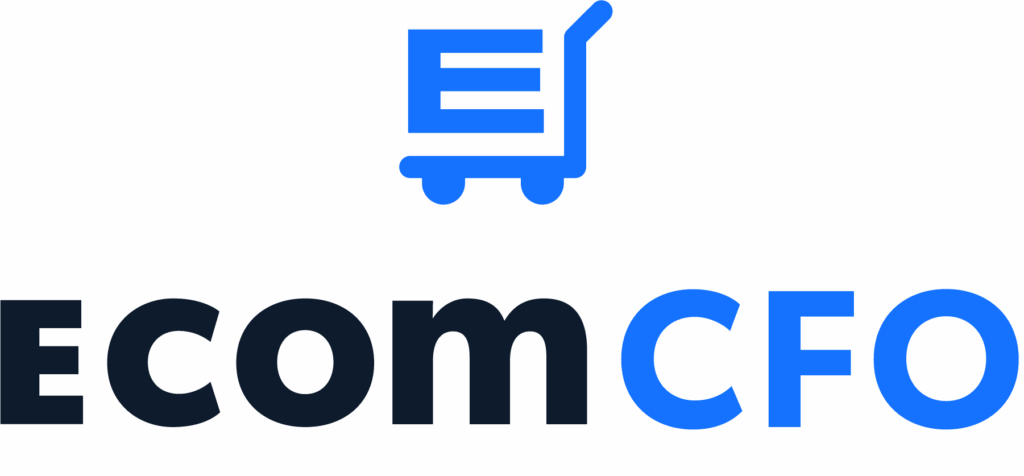“What gets measured gets managed” – Peter Drucker
Q: What are the things that you would be looking at if you were if they had hired you as their CFO?
A: Usually if someone is coming to us for the first time, the P&L and balance sheet is a good place to start, but is usually in disarray. So more often than not I’d prefer to look at the actual source documents. Going and pulling their amazon reports, and pulling their amazon sales, looking at the actual invoices that they’re receiving from suppliers. Looking at the freight expenses that they have and the actual advertising expenses and lining all of those up and understanding.
- Where are the pain points?
- Do we have a gross margin problem?
- Do we have a fixed cost problem?
- Do we have a marketing spend problem?
Where are the major issues that we can devote our time and effort to make the biggest impact.
Part of that process is obviously cleaning up the accounting side and making sure that we are implementing an accrual system and items are getting put in the right month and also in the right place on your chart of accounts. Making sure that you know a COGS item goes into the COGS bucket and making sure operating expense goes into the operating expense bucket. and you know that we’re comparing apples to apples each month, and you know probably most importantly seeing how those those margin percentages or the contribution margin percentage.
I know that that’s a relatively strange term and one of my hot topics, but seeing how those percentages are moving in relation to each other, each month, I think is another critical point that is being missed a lot.
It’s not just, “what is my margin today?” What was it yesterday? And why did it change? Did my cost go up? Did my ads get less efficient? Did my rent go up or did I spend more to get more reviews? These are the right questions.
Having a solid accounting foundation for your business allows you to make those decisions so much faster and be very clear about what those decisions are and it’s just such a huge unlock for your business for a relatively small amount of money. I’m biased but I really do believe that.
It’s honestly one of the reasons that I started this business in the first place is that I think finance is such a big piece that’s missing from e-commerce. Everyone just assumes, “hey i’m gonna launch products on amazon, or shopify, or whatever platform, and i’m gonna spend a bunch of ads and then i’m going to be financially free and sitting at a beach with a laptop.”
And a lot of times unfortunately, I see the opposite where you start that business, and you don’t understand the numbers and you’re losing money every month, the added stress, and then being forced into these decisions.

Q: Help us understand managing the numbers. There’s probably a lot of people listening to this and relating to the analogy of throwing a bunch of receipts in a shoe box and then handing it to your account at the end of the year or some people you know maybe they’re just selling on amazon in the US and they just pull a couple reports and they think that that’s good and you know they kind of have a good sense of comparing that to their bank account somewhere in between. But then you start outgrowing when you’re in multiple marketplaces selling in different places, and then you’ve got costs coming in different ways, so what are some basic financial reports that people should be putting together to look at and why?
A: You’re right, it all really depends on your level of scale. How you analyze the financials are very different with different levels of scale.
Not just in terms of revenue but also in terms of number of skus, the different channels that you’re selling on, and the complexity of your accounting. Your finance decision-making system should parallel the complexity of your business for the most part.
If you’re selling fifty thousand dollars worth of product a year and it’s a couple skus i don’t need to spend a thousand dollars a month on a bookkeeper or a lot of the complex technology to parse out every item detail. I can probably manage that in a google sheet because there’s just limited transactions and my time at that point is better spent elsewhere in developing new products, managing the ad campaigns, or launching on a new channel.
As you get into the quarter million, half a million, and certainly a million in sales annually, then okay, I need to have a little bit more complex system. Something like A2X, that’s going to automate my amazon payouts and parse it into the correct month. I need to transition from doing everything on a cash basis of accounting to accrual basis. (And we can certainly talk about what that means.)
You will need to start exploring having an outside third party (obviously we’d love it to be us), but someone that is gonna hold you accountable and also provide a different perspective.
Examples: What are my margins? How much money am I adding to the bank account? What does my inventory look like? Have I ordered enough? How am I planning for the fourth quarter? What are my projections for the rest of the year? How much cash do I need, and when do I need it? How am I going to get that cash? All those types of questions again should just align with the complexity and growth of your business and it should all be scaling together.
Podcast Audio: https://maximizingecommerce.com/122
